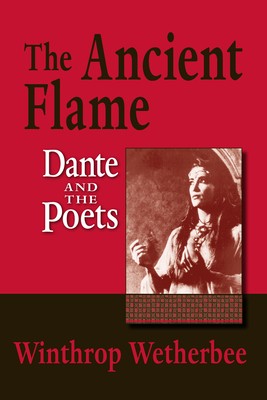
- We will send in 10–14 business days.
- Author: Winthrop Wetherbee
- Publisher: University of Notre Dame Press
- ISBN-10: 0268044120
- ISBN-13: 9780268044121
- Format: 15.3 x 22.9 x 2.5 cm, softcover
- Language: English
- SAVE -10% with code: EXTRA
Reviews
Description
While the structure and themes of the Divine Comedy are defined by the narrative of a spiritual pilgrimage guided by Christian truth, Winthrop Wetherbee's remarkable new study reveals that Dante's engagement with the great Latin poets Vergil, Ovid, Lucan, and Statius constitutes a second, complementary narrative centered on psychological and artistic self-discovery.
This fresh, illuminating approach departs from the usual treatment of classical poets in Dante criticism, which assigns them a merely allegorical function. Their true importance to Dante's project is much greater. As Wetherbee meticulously shows, Dante's use of the poets is grounded in an astute understanding of their historical situation and a deeply sympathetic reading of their poetry.
Dante may have been motivated to correct pagan thought and imagery, but more pervasive was his desire to recreate classical style and to restore classical auctoritas to his own times. Dante's journey in the Commedia, beginning with the pilgrim's assumption of a tragic view of the human condition, progresses with the great poetry of the classical past as an intrinsic component of--not just a foil to--the spiritual experience. Dante ultimately recognizes classical poetry as an essential means to his discovery of truth.
A stunning contribution by one of the nation's leading medievalists, Wetherbee's investigation of the poem's classicism makes possible an ethical and spiritual but non-Christian reading of Dante, one that will spur new research and become an indispensable tool for teaching the Commedia.
EXTRA 10 % discount with code: EXTRA
The promotion ends in 17d.08:36:05
The discount code is valid when purchasing from 10 €. Discounts do not stack.
- Author: Winthrop Wetherbee
- Publisher: University of Notre Dame Press
- ISBN-10: 0268044120
- ISBN-13: 9780268044121
- Format: 15.3 x 22.9 x 2.5 cm, softcover
- Language: English English
While the structure and themes of the Divine Comedy are defined by the narrative of a spiritual pilgrimage guided by Christian truth, Winthrop Wetherbee's remarkable new study reveals that Dante's engagement with the great Latin poets Vergil, Ovid, Lucan, and Statius constitutes a second, complementary narrative centered on psychological and artistic self-discovery.
This fresh, illuminating approach departs from the usual treatment of classical poets in Dante criticism, which assigns them a merely allegorical function. Their true importance to Dante's project is much greater. As Wetherbee meticulously shows, Dante's use of the poets is grounded in an astute understanding of their historical situation and a deeply sympathetic reading of their poetry.
Dante may have been motivated to correct pagan thought and imagery, but more pervasive was his desire to recreate classical style and to restore classical auctoritas to his own times. Dante's journey in the Commedia, beginning with the pilgrim's assumption of a tragic view of the human condition, progresses with the great poetry of the classical past as an intrinsic component of--not just a foil to--the spiritual experience. Dante ultimately recognizes classical poetry as an essential means to his discovery of truth.
A stunning contribution by one of the nation's leading medievalists, Wetherbee's investigation of the poem's classicism makes possible an ethical and spiritual but non-Christian reading of Dante, one that will spur new research and become an indispensable tool for teaching the Commedia.


Reviews